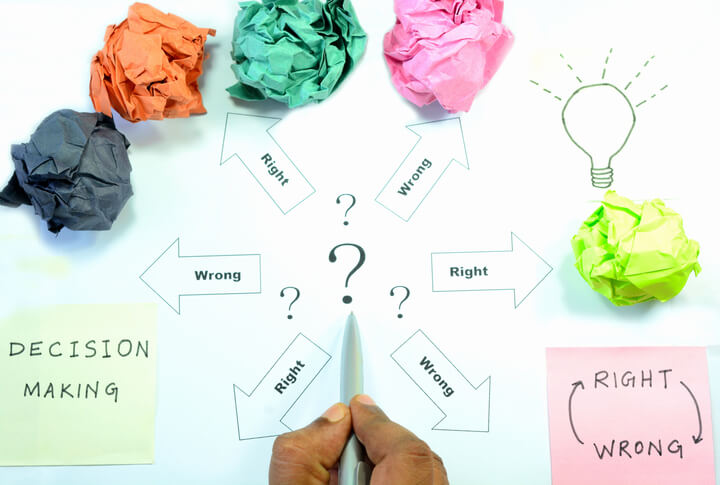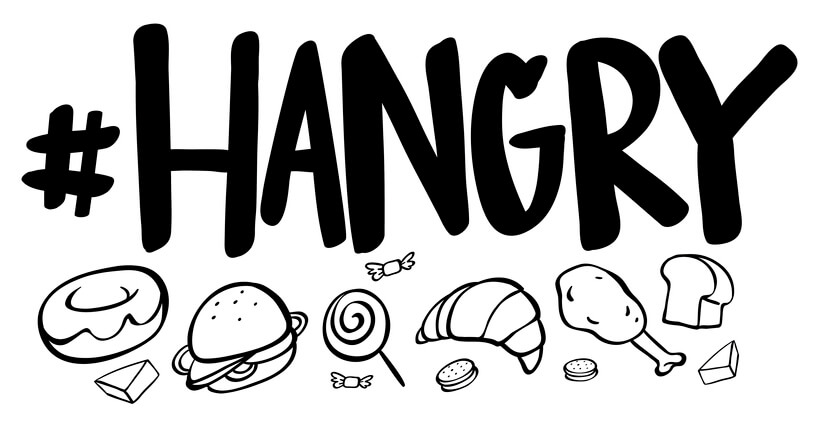By: Joy Stephenson-Laws, J.D., Founder
Life is Full of Decisions, But Don’t Make Them When You’re Hungry!

Mega pop star Ariana Grande once tweeted that true love doesn’t exist.
She then retracted her statement by deleting the sad tweet and then tweeting, “true love might exist i was just hungry.”
Whether she had a snack, realized her millions of fans probably didn’t want to hear from their idol that true love doesn’t exist or both, the reality is that we all may say, do or even tweet things we don’t mean when we are hungry.

It is that sensation when you are so hungry that you become angry and irrational. It’s like you turn into your evil twin until you get something into your belly.
And a recent study found evidence which suggests that you shouldn’t make major decisions when you are hungry because being hungry may make you less patient and more impulsive.
According to this report discussing the study, “... hunger significantly altered people's decision-making, making them impatient and more likely to settle for a small reward that arrives sooner than a larger one promised at a later date.”
So basically we may choose instant gratification over waiting it out for a larger reward. The researchers carried out their experiment by asking participants questions related to food, money and other rewards both while the participants were satiated and when they had skipped a meal.
“While it was perhaps unsurprising that hungry people were more likely to settle for smaller food incentives that arrived sooner, the researchers found that being hungry actually changes preferences for rewards entirely unrelated to food.”
“This indicates that a reluctance to defer gratification may carry over into other kinds of decisions, such as financial and interpersonal ones.”
This is a pretty big deal if you really think about it. We are all guilty of skipping breakfast sometimes or delaying lunch because we are so hyper focused on a work project. But doing this may actually affect our decision-making skills, which could ultimately affect our job performance and whether we make the best decisions in other facets of our lives.
To give you a bit more perspective and scale to this, in the recent study, "researchers noted that if you offer people a reward now or double that reward in the future, they were normally willing to wait for 35 days to double the reward, but when hungry this plummeted to only 3 days.”
And remember, this appeared to hold true even if the reward was not food-related.
So the concept of good things happening to those who wait may not apply when it comes to waiting too long to eat your meals.
This recent study is a great additional study to a prior well-known psychological study which involved children and marshmallows. The children were offered one marshmallow right away or they could have two if they were willing to wait 15 minutes.
The ones who were not willing to wait 15 minutes for two marshmallows were classified as being more impulsive. According to the study, "hunger makes people more impulsive even when the decisions they are asked to make will do nothing to relieve their hunger.”
And one of the doctors on the study made a very valid point. He said, "We hear of children going to school without having had breakfast, many people are on calorie restriction diets, and lots of people fast for religious reasons. Hunger is so common that it is important to understand the non-obvious ways in which our preferences and decisions may be affected by it."
Your Brain & Food
More research may be needed, but it makes perfect sense to me why hunger would affect our decision-making skills given the importance and complexity of fueling our brains with food.
A 2016 study suggested that hormones released during hunger actually affect decision-making. When we are hungry, a hormone called ghrelin is produced in our stomachs.
“For the first time, we have been able to show that increasing ghrelin to levels that are seen prior to meals or during fasting, causes the brain to act impulsively and also affects the ability to make rational decisions," said one of the researchers involved in the study, in this ScienceDaily report.
Good Decisionmaking Is Also Impacted By What You Eat.
What you eat affects your brain. Eating a donut instead of an apple may not cause you to make a poor or irrational decision, however, constantly eating junk foods instead of nutrient-dense whole foods, like fruits and vegetables, may cause prolonged inflammation in the brain which could increase your risk for mental diseases such as depression and dementia.
And I suppose one could argue that if you are depressed (for example), you are not likely to make the best decisions when life presents certain options. So it really is important to not only avoid hunger pangs but also fuel our bodies and brains with nutrient-rich foods.
If you choose to practice fasting, be aware that doing so may affect your decision-making skills regarding issues that are not always food-related.
Finally, maintain nutritional balance for a healthy mind and body. Take routine nutrient tests in order to identify any nutrient imbalances or deficiencies. If you discover a deficiency or imbalance, a competent healthcare professional can work with you regarding making the necessary dietary changes and recommend quality supplements if necessary.
Enjoy your healthy life!
The pH professional health care team includes recognized experts from a variety of health care and related disciplines, including physicians, attorneys, nutritionists, nurses and certified fitness instructors. This team also includes the members of the pH Medical Advisory Board, which constantly monitors all pH programs, products and services. To learn more about the pH Medical Advisory Board, click here.







